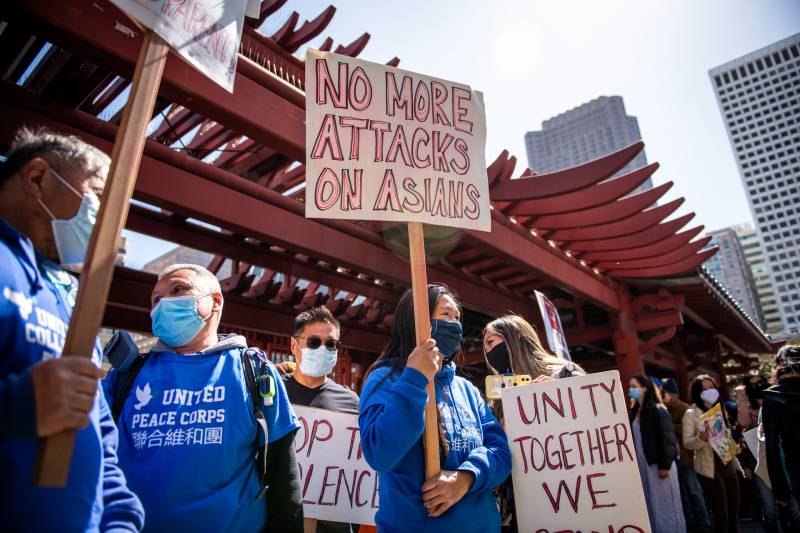Many speakers called for greater coordination between city agencies and community groups to counteract and prevent crimes targeting AAPI residents, improved cultural and linguistic competency, particularly for first responders, and more cross-racial solidarity.
“So often our communities are being pitted against each other,” said Cynthia Choi, co-executive director of Chinese for Affirmative Action and co-founder of Stop AAPI Hate. “We want to understand the divisions, particularly around the Chinese and Black community.”
Shakirah Simley, director of San Francisco’s Office of Racial Equity, also gave a presentation to the board. Simley said many structural issues and problems existed before COVID-19, but the pandemic has created a more intense “pressure cooker.” She noted the importance of looking at all facets: before, during and after an incident, while also emphasizing the “tremendous” amount of race-based structural violence AAPI residents are facing.
“We know that there’s a tremendous amount of race-based structural violence that our AAPI residents face every day from housing conditions or work conditions and access to health care and other services,” she said, adding that expanding preventative education, countering anti-immigrant narratives and white supremacist extremism are also important parts of combating the problem. “And we do need systemic policy change in public services to remedy this.”
Adrienne Pon, executive director of the city’s Office of Civic Engagement and Immigrant Affairs echoed the importance of an intersectional approach — noting how racial, economic, health and housing equity intersect with other facets, such as criminal justice and access to services.
“Addressing the hate and violence has to be about all these things,” she said. “It’s not enough to have a conversation when something bad happens. We need to have ongoing conversations and collaborations about how to solve these problems.”

